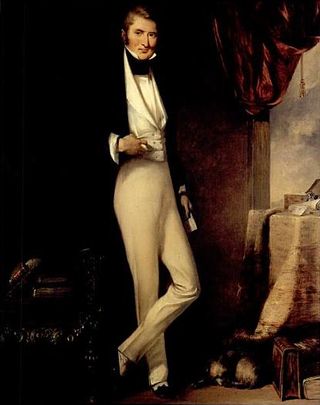
William Jardine was a Scottish physician, opium merchant and trader who co-founded the Hong Kong based conglomerate Jardine, Matheson & Co. Following his return to England from the Far East, between 1841 and 1843, he was Member of Parliament for Ashburton representing the Whig party.

The Treaty of Nanking was the peace treaty which ended the First Opium War (1839–1842) between Great Britain and the Qing dynasty of China on 29 August 1842. It was the first of what the Chinese later termed the Unequal Treaties.
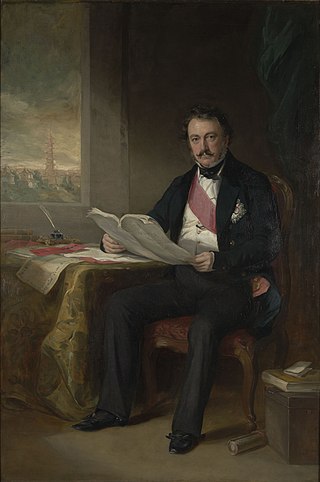
Lieutenant-General Sir Henry Pottinger, 1st Baronet, was an Anglo-Irish soldier and colonial administrator who became the first Governor of Hong Kong.

Sir Henry Arthur Blake was a British colonial administrator and Governor of Hong Kong from 1898 to 1903.

Karl Friedrich August Gützlaff, anglicised as Charles Gutzlaff, was a German Lutheran missionary to the Far East, notable as one of the first Protestant missionaries in Bangkok, Thailand (1828) and in Korea (1832). He was also the first Lutheran missionary to China. He was a magistrate in Ningbo and Zhoushan and the second Chinese Secretary of the British administration in Hong Kong.

Sir John Francis Davis, 1st Baronet was a British diplomat and sinologist who served as second Governor of Hong Kong from 1844 to 1848. Davis was the first President of Royal Asiatic Society Hong Kong.

Sir James Nicolas Sutherland Matheson, 1st Baronet, FRS, was a Scottish taipan. Born in Shiness, Lairg, Sutherland, Scotland, he was the son of Captain Donald Matheson. He attended Edinburgh's Royal High School and the University of Edinburgh. He and William Jardine went on to co-found the Hong Kong-based trading conglomerate Jardine Matheson & Co. that became today's Jardine Matheson Holdings.
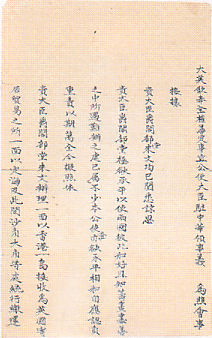
The Convention of Chuenpi was a tentative agreement between British Plenipotentiary Charles Elliot and Chinese Imperial Commissioner Qishan during the First Opium War between the United Kingdom and the Qing dynasty of China. The terms were published on 20 January 1841, but both governments rejected them and dismissed Elliot and Qishan, respectively, from their positions. Foreign Secretary Lord Palmerston stated that Elliot acquired too little while the Daoguang Emperor believed Qishan conceded too much. Palmerston appointed Major-General Henry Pottinger to replace Elliot, while the emperor appointed Yang Fang to replace Qishan, along with Yishan as General-in-Chief of Repressing Rebellion and Longwen as an assistant regional commander. Although the convention was unratified, many of the terms were later included in the Treaty of Nanking (1842).
The Keswick family are a business dynasty of Scottish origin associated with the Far East region since 1855 and in particular the conglomerate Jardine Matheson.
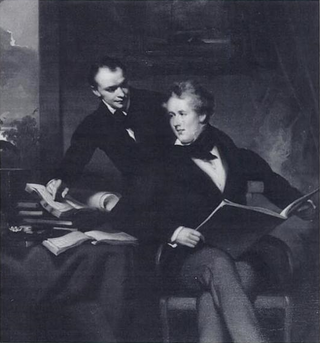
John Robert Morrison was a British interpreter and colonial official in China. Born in Macau, his father was Robert Morrison, the first Protestant missionary in China. After his father's death in 1834, Morrison replaced him as Chinese Secretary and Interpreter to the Superintendents of British Trade in China. In 1843, he was appointed as Acting Colonial Secretary of Hong Kong and a member of the Executive and Legislative Councils, but died eight days later in Hong Kong from fever.
Edward Geoffrey Simons Parrinder — known as E.G. Parrinder or Geoffrey Parrinder — was a professor of Comparative Religion at King's College London, a Methodist minister, and the author of over 30 books on world religions. At least one — What World Religions Teach Us (1968) — achieved bestseller status. He was an authority, and pioneering researcher, on West African indigenous religions.

The Oriental Bank Corporation, or "OBC", was a British imperial bank founded in India in 1842 which grew to be prominent throughout the Far East. As an Exchange bank, the OBC was primarily concerned with the finance of trade and exchanges of different currencies. It was the first bank in Hong Kong and the first bank to issue banknotes in Hong Kong.
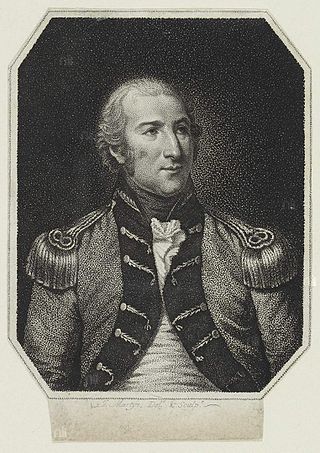
Henry Charles Sirr was an Anglo-Irish military officer, policeman, merchant and art collector. He played a prominent role in suppressing the Irish Rebellion of 1798, which included personally killing Society of United Irishmen leader Lord Edward FitzGerald, who Sirr alleged had been resisting arrest.

The Second Battle of Chuenpi was fought between British and Chinese forces in the Pearl River Delta, Guangdong province, China, on 7 January 1841 during the First Opium War. The British launched an amphibious attack at the Humen strait (Bogue), capturing the forts on the islands of Chuenpi and Taikoktow. Subsequent negotiations between British Plenipotentiary Charles Elliot and Chinese Imperial Commissioner Qishan resulted in the Convention of Chuenpi on 20 January. As one of the terms of the agreement, Elliot announced the cession of Hong Kong Island to the British Empire, after which the British took formal possession of the island on 26 January.
The Commander British Forces in Hong Kong (CBF) was a senior British Army officer who acted as Military Advisor to the Governor of Hong Kong and was in charge of the Hong Kong British Forces. The officeholder of this post concurrently assumed the office of the Lieutenant Governor of Hong Kong before the abolition of the position.

Alexander Robert Johnston, FRS was a British colonial official who served twice as Acting Administrator of Hong Kong from 1841 to 1842. He also served in the Executive and Legislative Councils of Hong Kong. He became a Fellow of the Royal Society in 1845 for his work on the natural history of China.

General Sir Charles Thomas van Straubenzee, was a British Army officer. He served as Commander of British Troops in China and Hong Kong, and Governor of Malta.
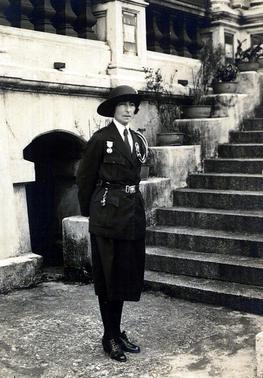
Bella Sidney Woolf OBE (1877–1960) was an English author, sister of author Leonard Woolf and first married to Robert Heath Lock, and in her second marriage to Hong Kong colonial secretary and colonial Ceylonese administrator Tom Southorn.
Paul Ivy Sterling was a British lawyer and Judge. He served as the first Attorney General of Hong Kong and as a Puisne Judge in Ceylon .

David Sassoon & Co., Ltd. was a trading company operating in the 19th century and early 20th century predominantly in India, China and Japan.

















